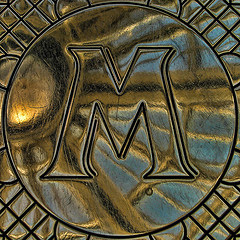What is this “Means” Test?

The means test is used to determine eligibility for Title 11 of the
United States Code Chapter 7, or the plan payments
in a Chapter 13 bankruptcy case.
It was designed to prevent debtors who have sufficient financial means to pay a portion of their debts from liquidating them entirely in a chapter 7 bankruptcy. Creditors pushed for the inclusion of a means test because they wanted to weed out those who could pay something.
During the Great Depression, the test was used to screen applicants for such programs as Home Relief in the United States, and starting in the 1960s, for benefits such as those provided by the Food Stamp Program. In 2005, the United States bankruptcy laws changed by adding a means test to purportedly prevent wealthy debtors from filing for Chapter 7 Bankruptcy. This 2005 BAPCPA change is found in 11 U.S.C. § 707(b).
If you are in the military or have a majority of non-consumer debt you are exempt from the means test income guidelines. Non-consumer debts are mainly those incurred for business or profit purposes, tax debt and tort debt.
Is Your Income Less Than the Median?
Debtors whose income is below the state’s median income pass the means test. To check your median income you must first determine your household size. Gross wages, business income, pension, family support, unemployment, regular gifts and other income is included. Social security payments are not included.
The median annual California incomes as of May 2020 are:
1 person – $62,938
2 persons – $83,435
3 persons – $92,735
4 persons – $106,530
5 persons or more – Add $9,000 for each person in excess of 4.
If your income is below the median you go no farther with the form or the calculations. STOP, you are done. You are eligible to file for chapter 7 bankruptcy and do not need to complete the rest of the form.
What If My Income is Over the Median?
In Marin and surrounding counties, we often see the situation where the income exceeds the median but there is not enough left to make payments to the creditors. In this case the long form of the means tests must be completed. The long form factors in expenses like:
|
|
|
Most people who need help find that they pass the means test.
If you pass the means test it means that you can file a chapter 7 bankruptcy. However, just because you can file under chapter 7 doesn’t mean it is the best chapter for you to file under. If you are trying to catch up with mortgage payments, aren’t making your HOA dues payments or have unsecured liens on your property a chapter 13 would likely benefit you more.
Please see the following for more M posts:
Image Credit: Leo Reynolds
Guide to Eliminating Debt
Through Bankruptcy for
California Consumers.